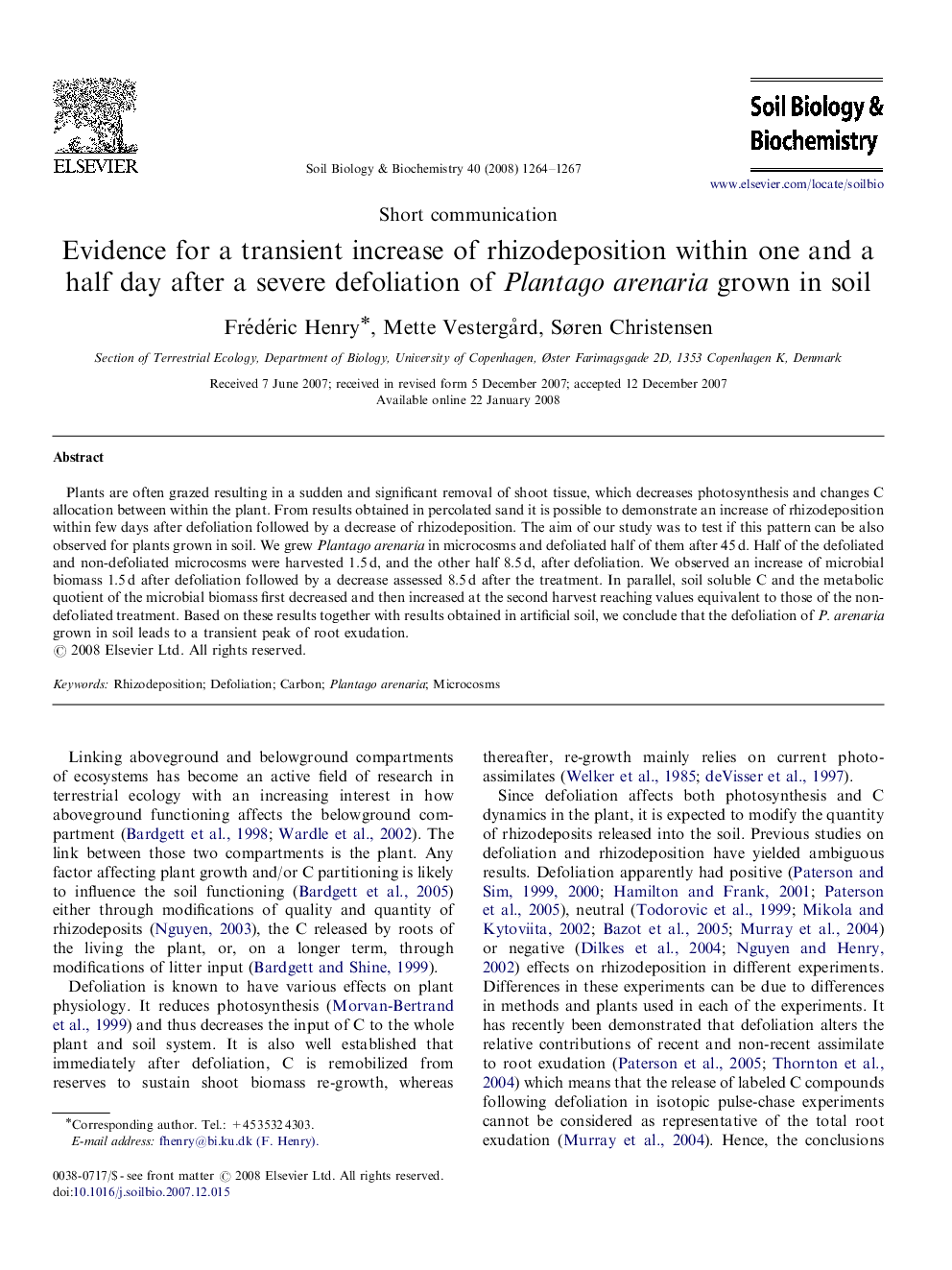| Article ID | Journal | Published Year | Pages | File Type |
|---|---|---|---|---|
| 2026043 | Soil Biology and Biochemistry | 2008 | 4 Pages |
Plants are often grazed resulting in a sudden and significant removal of shoot tissue, which decreases photosynthesis and changes C allocation between within the plant. From results obtained in percolated sand it is possible to demonstrate an increase of rhizodeposition within few days after defoliation followed by a decrease of rhizodeposition. The aim of our study was to test if this pattern can be also observed for plants grown in soil. We grew Plantago arenaria in microcosms and defoliated half of them after 45 d. Half of the defoliated and non-defoliated microcosms were harvested 1.5 d, and the other half 8.5 d, after defoliation. We observed an increase of microbial biomass 1.5 d after defoliation followed by a decrease assessed 8.5 d after the treatment. In parallel, soil soluble C and the metabolic quotient of the microbial biomass first decreased and then increased at the second harvest reaching values equivalent to those of the non-defoliated treatment. Based on these results together with results obtained in artificial soil, we conclude that the defoliation of P. arenaria grown in soil leads to a transient peak of root exudation.
